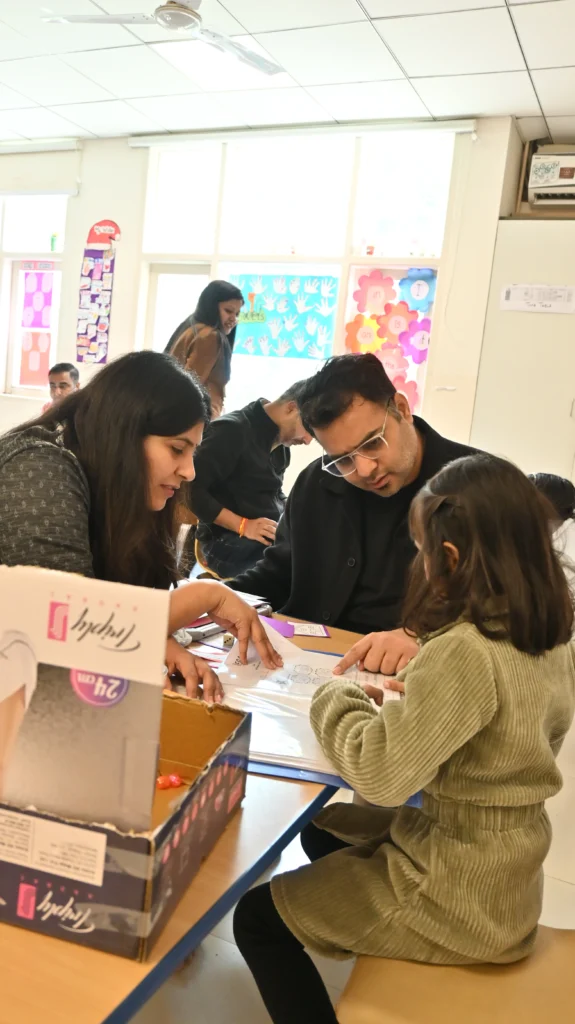The basis for later academic and personal success is laid by early childhood reading, which includes children’s language, vocabulary, narrative abilities, emergent phonics, and love of print. According to UNESCO’s most recent viewpoints, family and intergenerational literacy programs have a significant impact, and parents are a child’s first and most essential teachers. Here are some practical things parents may do from birth onward, based on UNESCO reports and examples of global learning.
What New UNESCO Research Tells Parents to Do
1. Acknowledge Your Position as Your Child’s Primary Instructor
According to UNESCO, parents and other caregivers serve as children’s primary language models and help them develop early communication abilities through reading aloud, storytelling, and casual conversation. Before the start of formal schooling, this “home language exposure” develops vocabulary, listening comprehension, and emerging literacy skills.
2. Establish a Multilingual and Print Environment
Making your home language and print rich is essential. This entails having regular conversations, explaining procedures, offering “W-questions” (what, where, when, and why), and introducing them to print in authentic settings. Keep books at a child’s reach, label everyday objects, and highlight words on signs and labels.
3. Practice Dialogic Reading and Read Aloud Frequently
UNESCO emphasises dialogic, interactive reading over passive listening. Even at an early age, parents should read aloud to their children every day, set an example of expressive reading, and pose questions while they read (“What happens next? “Why did she do that?”), and inspire them to think critically and make predictions. This fosters deeper conversation about tales, comprehension, and critical thinking.

4. Encourage the teaching of mother tongue and home language
Early literacy development in the child’s mother language or at home is highly recommended by UNESCO’s Global Education Monitoring Report because it enhances reading comprehension and long-term learning across disciplines. Speaking and reading in the native tongue preserves cultural identity and language skills while providing the groundwork for later acquisition of a second language.
5. Take Part in or Modify Family Literacy Initiatives
Family-focused initiatives, such as MOCEP in Turkey or Ethiopia’s eBooks & Family Literacy Program, actively engage parents and kids in structured literacy sessions. Pre-reading, dialogic reading, oral language games, follow-up activities, and e-book creation are all skills that these programs model and reinforce at home. Aspects such as reading aloud, warm-up talks, guided discussions, and follow-up creative exercises like acting out stories or painting can be replicated by parents even outside of formal programs.
6. Encourage Parents to Learn and Reflect
Parents frequently lack training in early literacy strategies, according to UNESCO. Parental confidence can be increased with basic instruction on how to label situations, ask questions, and speak in their native tongue. Particularly successful are parent-child two-generation learning programs: When parents and kids learn together, both parties benefit.
- Speak and describe your day: Ask your child open-ended questions, explain what you are doing, and welcome their answers.
- Every day, read: Pick novels that are suitable for your age. Make it interactive by letting your child turn pages, pausing to ask questions, or letting them guess what will happen next.
- Employ songs and storytelling: Creating rhymes, singing, or telling stories can help develop vocabulary and narrative skills even in the absence of a book.
- Continue reading in your native tongue: Your child gains from having a strong foundation in the language spoken at home, even if school is taught in a different language.
- Look for or participate in group literacy initiatives: Parent-child reading groups or literacy seminars may be offered by neighbourhood libraries, community centres, or non-governmental organisations.
Recent research from UNESCO confirms that literacy starts with your words, stories, and relationships long before you attend formal schooling. A strong foundation for lifetime learning can be established by fostering a home rich in language and print, reading aloud frequently, interacting with your child dialogically, and encouraging literacy in the home language.
Intergenerational literacy gains occur when parents are empowered and actively involved as learners alongside their children. The advantages go far beyond preparing students for success in school; they foster a lifelong love of language and reading as well as curiosity, critical thinking, and cultural identification.
Vega Schools offers holistic education to children in Delhi NCR and is rated among the top Schools in Gurgaon. Its modern infrastructure, facilities, and experienced teachers are a big asset to the learning & development of students, be it for Nursery, Primary or Senior children making Vega Schools the best schools in Gurgaon. For information about admission please visit the Vega Schools campuses in Sector 48 and Sector 76 Gurugram.
